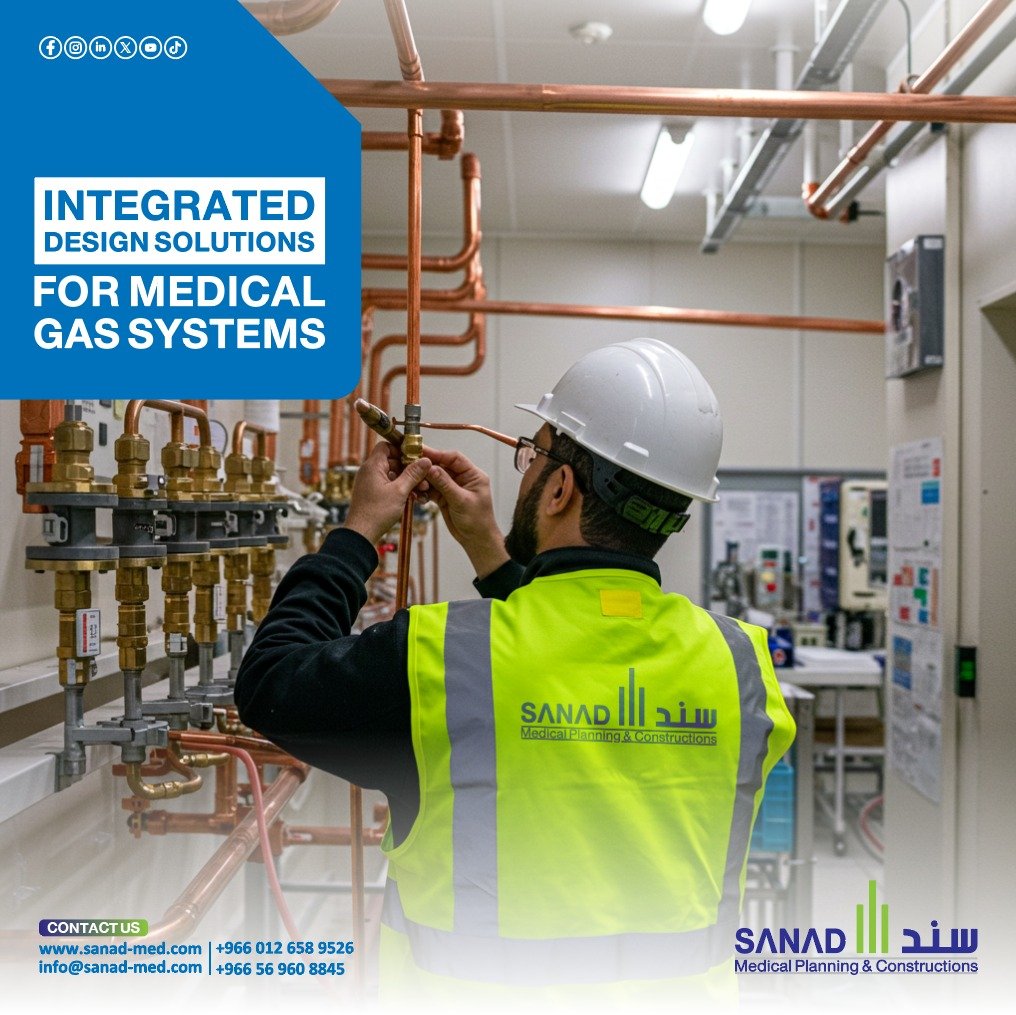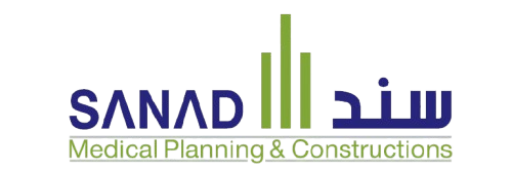Medical Gas Systems (MGS) are a vital component of modern hospitals, providing essential gases such as Oxygen, Nitrous Oxide, and Medical Air to critical departments like Operating Rooms, Intensive Care Units (ICUs), and Emergency Departments. In Saudi Arabia, where the healthcare sector is undergoing significant transformation as part of Saudi Vision 2030, these systems play a foundational role in ensuring healthcare safety and protecting both patients and medical staff. This article will explore the importance of MGS, the challenges of their installation and maintenance, and how companies like Sanad Medical Company are providing effective solutions to meet national quality and safety standards.

The Importance of Medical Gas Systems
Medical Gas Systems are the backbone of clinical operations. They provide critical life support for patients in serious conditions, such as those who require ventilators in the ICU or anesthesia during surgery in the operating room. Oxygen is crucial for respiratory function, while Nitrous Oxide is used as part of general anesthesia. Medical Air is used to power medical devices that require a clean, contaminant-free air supply.
To guarantee safety, these systems must comply with stringent regulations, including those set by the Saudi Central Board for Accreditation of Healthcare Institutions (CBAHI) and international standards like NFPA 99. Any system failure or leak can lead to severe risks, such as oxygen depletion or fire. A reliable MGS also improves hospital efficiency by providing a stable and uninterrupted supply, which enhances the overall quality of healthcare.
Challenges in MGS Installation and Maintenance
Installing Medical Gas Systems requires a high level of technical expertise and precision. A major challenge is ensuring the pipelines are completely leak-free, which necessitates comprehensive pressure testing. For instance, the copper pipelines used for oxygen must be free of contamination to prevent leaks that could lead to fires or gas explosions.
Another challenge is the high cost of equipping these systems, especially in large hospitals with complex networks. Compliance with CBAHI standards also requires meticulous documentation for every installation phase, including quality certificates for all materials. In remote regions, these challenges are compounded by a lack of logistical resources and trained technicians, requiring customized solutions for effective and easy-to-maintain systems.
Maintaining MGS is just as important as installing them. It requires regular maintenance and routine inspections to detect potential leaks, corrosion, or malfunctions in pipes and valves. The cost of maintenance is a significant factor, as it demands genuine original spare parts and skilled technical teams. Any negligence in maintenance can lead to gas supply interruptions, posing a direct threat to patient safety.
Sanad Medical Company’s Role in Supporting MGS
Sanad Medical Company provides installation and maintenance services for Medical Gas Systems that align with both CBAHI and international standards. The company utilizes high-quality materials and conducts meticulous pressure testing to ensure leak-free systems.
Sanad Medical also offers regular maintenance services, including pipeline inspections, valve cleaning, and replacement of damaged parts with original spare parts. These services are designed to minimize the risk of malfunctions and ensure optimal system performance. The company also provides training programs for medical and technical staff on how to operate the systems and perform basic maintenance, which improves operational efficiency.
Integration with Saudi Vision 2030
Medical Gas Systems contribute directly to the goals of Saudi Vision 2030 by enhancing healthcare quality and patient safety. By providing reliable MGS, companies like Sanad Medical support the development of a sustainable healthcare infrastructure, reducing dependency on external services and boosting hospital operational efficiency. This also contributes to the localization goals of Vision 2030 through specialized training programs that develop local talent.
Strategies for Improving Performance and Safety
Sanad Medical employs advanced monitoring technologies, such as sensors, to detect leaks in real-time, allowing for rapid intervention. The company also offers technical consultations to optimize system design and reduce gas consumption, which helps to lower costs and improve efficiency.
Practical Steps for MGS Installation and Maintenance
Sanad Medical follows a structured approach to ensure system quality:
- Needs Assessment: Identifying the required gas types and system size.
- Custom Design: Creating designs that comply with CBAHI and NFPA 99 standards.
- Professional Installation: Installing pipelines and valves using high-quality materials.
- Pressure Testing: Conducting tests to ensure systems are leak-free.
- Regular Maintenance: Inspecting systems regularly and replacing worn parts.
- Training: Educating staff on basic system operation and maintenance.
Conclusion
Medical Gas Systems (MGS) are an essential component in advancing healthcare safety in Saudi Arabian hospitals, as they support critical operations and protect patients. Companies like Sanad Medical provide installation and maintenance services that meet the highest quality standards, contributing to the goals of Saudi Vision 2030

